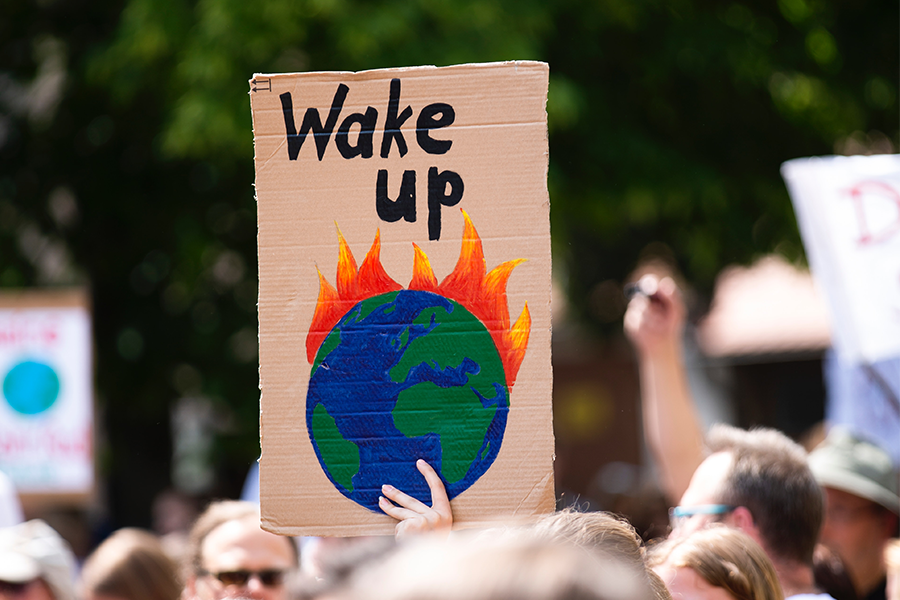
By Diana Potter
Tried lab-grown “fungus amongus” meat yet? If world-class climate scientists have their way, we’ll all be eating it and other nonmeat foods, and soon — hopefully by 2030, when, they say, the world must reach its “meat peak” or face likely-inevitable climate catastrophe.
What’s that about meat peak?, you ask. The term was coined to refer to the time when the world’s meat consumption must stop increasing and, most important, start a steep decline. Fifty climate experts, writing in the Lancet Planetary Health Journal, say that global meat peak must occur by 2030 if we’re to prevent being overcome by global-warming climate destruction from animal agriculture, which is already causing:
18% of greenhouse gas emissions (from burning fossil fuels such as coal), more than ALL the transportation exhaust emissions in the world put together, and
32 million TONS of carbon dioxide released into the atmosphere, accounting for another 51% of greenhouse gas emissions.
That’s scary enough. But did you know that animal agriculture is also the leading cause of species loss (irreversible wipeout of living things, as you know) and “dead zones” in our oceans?
Global Warming Facts
Around the world, climate-concerned scientists agree that climate catastrophe can be prevented only if the level of global warming does not exceed 1.5oC (34.7oF).
Thinking that the Earth couldn’t possibly get almost 38 degrees warmer than it should be? As the saying goes: Think again. According to the Intergovernmental Panel on Climate Change (IPCC), our atmosphere’s concentration of carbon dioxide, nitrous oxides, and methane “have increased to levels unprecedented in at least the last 800,000 years.” They also report that levels of carbon dioxide, the major contributor to climate change, have increased by 40% since the Industrial Age began.
“Apocalypse Cow: How Meat Killed the Planet”
This recent television documentary, presented in the UK by vegan environmental advocate George Monbiot, delved deeply into the links between animal agriculture and climate change. Monbiot also wrote a related article for The Guardian newspaper that, in addition to reinforcing his climate concerns, promoted the growth of manufacturing man-made foods using technological innovations.
“Many people are rightly concerned about urban sprawl,” he stated. “But agricultural sprawl — which covers a much wider area — is a far greater threat to the natural world. We are on the cusp of the biggest economic transformation, of any kind, for 200 years.”
That includes the significant progress being made in developing lab-grown meats that actually taste good. (For more information, read our recent news article, “There’s a Fungus Amongus!”).
In the meantime, climatologists say we humans have just a decade left to mend our meat-eating ways. The Earth is waiting.
But not for long.

